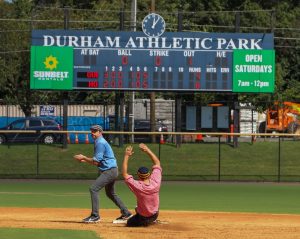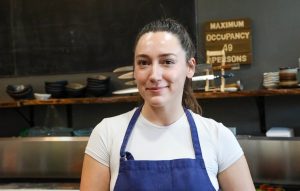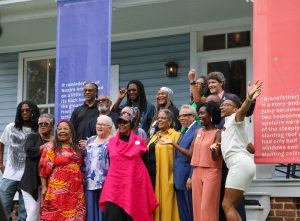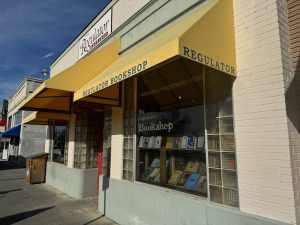When the NFL needed help to stop the spread of the MRSA bacteria in 2013, the league called Dr. Deverick Anderson, a Duke infectious disease specialist, who established new locker room protocols and disinfection routines. Now, Anderson is tackling a bigger problem, helping health care workers combat the spread of the coronavirus.
Anderson, the director of the Duke Center for Antimicrobial Stewardship and Prevention Program, said his primary concern is making sure that health workers who work with patients who have the virus don’t end up sick themselves.

Anderson received his undergraduate degree from University of North Carolina and later “stumbled down the path” of infection prevention while at the Duke School of Medicine, where he knew he wanted a specialty that focused on the body as a whole, rather than a single organ. He liked focusing on infections because they typically have a cure. He liked the idea of identifying and then eliminating a problem, which led him to infection prevention.
His research on infection prevention has earned him grants to study infection control in community hospitals, multi-drug resistant organisms, and device-related infections. He led a study that compared four types of hospital cleaning protocols and found those that utilize ultraviolet machines are the most effective. In April, he studied the role of chest imaging in patients with the coronavirus.
Doctors who have worked with him describe him as unflappable and a great mentor.
“He’s got a remarkable ability not to show stress and to be fun to be around and work with, regardless of how the day or week is going,” said Dr. Arthur Baker, a Duke assistant professor of medicine who worked with Anderson on the early detection of infection outbreaks in surgical sites. “I think that combination of things has really made him a fantastic mentor for me.”
Duke Assistant Professor of Medicine Dr. Sonali Advani, who recently published an article with Dr. Anderson titled “Universal masking in hospitals in the COVID19 era,” said, “I left a very good position at Yale to come here just to be mentored by him.” She spoke of how caring he is, setting aside 10 minutes at the end of each mentor session to discuss families, house remodeling, and other things outside of work.
He is nationally known and has been quoted by National Public Radio, The New York Times and The Washington Post.
So what does the germ doctor advise about the coronavirus?
He says the prevention measures you’ve heard about are still a good recipe: wearing face masks, practicing social distancing, and frequent hand washing. “I think it’s safe to say that all those together are certainly going to be much more effective than one of them individually,” he said.
Along with that trifecta of things to protect yourself, Anderson also has a simple mindset for society’s overall approach for the virus: “It is all for one and one for all,” he said. “You’re not just wearing a mask for yourself. You’re wearing a mask for others in your community as well.”
He says you’re more likely to get the virus from another person than from picking it up from a surface. “It’s not a 50 one way and 50 the other. It’s probably much more weighted towards person-to-person.” So should we still be wiping everything down? He says that’s a good precaution, but in-person contact is the most likely way to get the virus.
As a consultant for the NFL, he feels the league has a good foundation for preventing the spread of infection. But the league needs to continue to build on that approach in this new age of the coronavirus.
He says professional sports teams need to be asking themselves the same question as other businesses: “How can you be innovative about keeping people apart? How can you make sure that people wash their hands routinely or make it easy to do what’s right? And how can you get them to wear a mask? All of those same interventions are going to be useful in athletic training facilities as well.”
As lockdown regulations are loosened, it can be difficult to decide which situations are safe and which are not. Although Anderson can’t tell you which situations are worth the risk, he says, “In the end all of this is about risk-benefit. There is no such thing as a zero risk scenario in our society right now until there is an effective vaccine. . .It is a personal decision about what is considered to be an acceptable risk or the potential benefit that might be reaped.”




